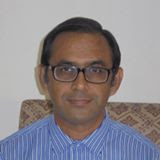"Some say our planet is too crowded. I say we are seven billion strong. But we will only be able to use that strength for the benefit of all if our societies are built on mutual respect and understanding," …Ban Ki-Moon UN Secretary-General. [News report, TNIE, 1.11.11]
And that is a big if….to be strong….
As rightly stated by Mr. Moon, collective strength requires mutual respect and understanding which is clearly missing under the various global imperatives. Since weaknesses abound, there is a distinct lack of “unity of purpose”. Weaknesses abound because of our strong domain dependence. Domains come in various forms….religion, nation, state, caste, creed, class, school, departments, areas, specializations, and so on…..just name a turf (and it is there). This detracts the individual entity from supporting the inclusive growth challenges because the individual prefers to be within the comfort zone of the domain-specific boundaries.
Another extract from the same report reads…
[Quote] UN Population Fund's (UNFPA) Executive Director Babatunde Osotimehin said actions taken now will decide whether the future of the seventh billion baby will be healthy, sustainable and prosperous or marked by inequalities, environmental decline and economic setbacks. "The world must seize the opportunity to invest in the health and education of its youth to reap the full benefits of future economic development or else face a continuation of the sorry state of disparities in which hundreds of millions of people in developing nations lack the most basic ingredients for a decent life," Osotimehin said. [Unquote]
According to Osotimehin, “planning and the right investments in people will empower them to make choices that are not only good for themselves, but also for a world of seven billion.”
Is Indian education sector investing accordingly? While transcending the borders is the need of the hour, we have regulatory bodies that continue to pursue policies of yesteryears that drive the entities into various impermeable disciplinary silos. While “design thinking” and “systems thinking” philosophies have been promoting concepts of the whole being actually larger than the part, we continue to participate in a fragmented (read parochial) education system that would much rather promote the part being larger than the whole. As a result, professional higher education (particularly in India) is not geared to think differently.
Design thinking is the next competitive advantage…yet in most B-School placements, it is made to appear that the industry is still interested in the “specialization tag”. This confuses the students who are then later supposed to work with a “unity of purpose”. [Earlier blog post: Story of Strong Areas and Weak Areas”]
Related link: Kakodkar Committee Report
Tuesday, November 1, 2011
Neuromarketing and virtual products
Here is an excerpt from this article by Raja Mohan Tella titled “Neuromarketing targets the brain” [TNIE, 1-11-11]:
[Quote] Neuromarketing can loosely be defined as the efforts of marketers to understand how the human brain processes images and various marketing stimuli. How, for instance, does the brain collect and filter information while making decisions related to buying. The brain retains some of this collected information; it recalls and re‐associates it when exposed to the corresponding stimuli. This information‐collection process is an ongoing one. We may assume this is done unconsciously, spontaneously and speedily. Ponder over this when you make your next buying decision. What attracted you? What were the colours you liked? How did you react to the words around the product and the images? How did you associate the words with the colours and the propositions the product sets out? These questions will give you a sense of what neuromarketers are attempting to do. [Unquote]
Our new course on Consumer Response to Manufactured Products attempts to elicit human response to products even before they are manufactured. It is part of the PLM courses under Technology Management. The course page is under development (click here for the course descriptions).
[Quote] Neuromarketing can loosely be defined as the efforts of marketers to understand how the human brain processes images and various marketing stimuli. How, for instance, does the brain collect and filter information while making decisions related to buying. The brain retains some of this collected information; it recalls and re‐associates it when exposed to the corresponding stimuli. This information‐collection process is an ongoing one. We may assume this is done unconsciously, spontaneously and speedily. Ponder over this when you make your next buying decision. What attracted you? What were the colours you liked? How did you react to the words around the product and the images? How did you associate the words with the colours and the propositions the product sets out? These questions will give you a sense of what neuromarketers are attempting to do. [Unquote]
Our new course on Consumer Response to Manufactured Products attempts to elicit human response to products even before they are manufactured. It is part of the PLM courses under Technology Management. The course page is under development (click here for the course descriptions).
Subscribe to:
Comments (Atom)

